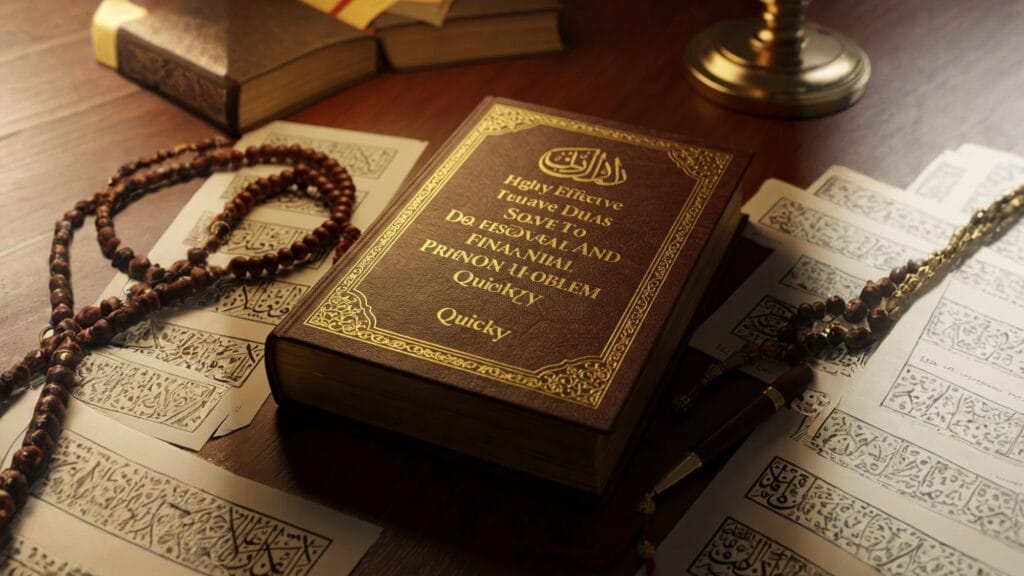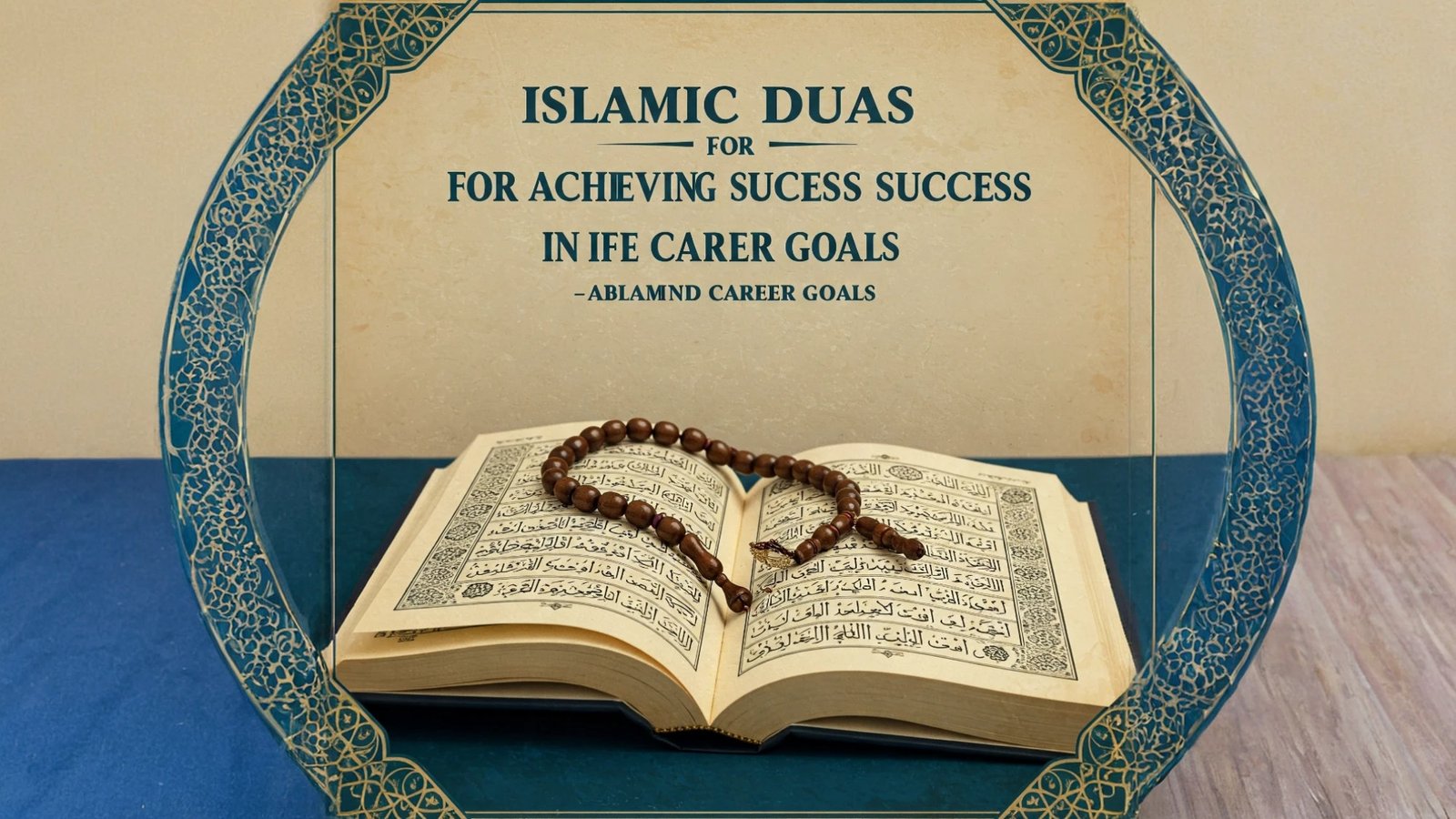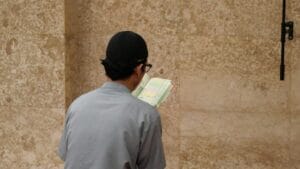In today’s fast-paced world, financial problems are among the most common challenges people face. Whether it’s mounting debt, unexpected expenses, or struggles with income, financial difficulties can lead to stress, anxiety, and even despair. For Muslims, turning to Allah (SWT) through duas (supplications) offers a powerful way to seek relief and guidance. Islamic teachings emphasize that Allah is the ultimate provider, and through sincere prayer, one can find solutions to even the most daunting personal and financial issues.
This comprehensive guide explores the most effective Islamic duas for solving financial problems quickly. It also provides insights into how to perform these duas, the best times to recite them, and additional practices to enhance their impact. Whether you’re seeking immediate relief or long-term financial stability, these duas can help you navigate your challenges with faith and hope.
Additionally, for those interested in deepening their understanding of Islamic supplications, this article highlights resources such as online Islamic universities, courses, and books. We’ll also cover fees, reviews, and ratings of these resources to help you make informed decisions. By the end of this guide, you’ll have a complete understanding of how to use duas to overcome financial difficulties and where to find further learning opportunities.

Introduction: The Power of Dua in Islam
In Islam, dua is a direct form of communication with Allah (SWT). It’s an act of worship where a believer humbly asks for help, guidance, or forgiveness. The Quran and Hadith are filled with examples of prophets and righteous individuals who turned to Allah in times of need, and their prayers were answered in miraculous ways.
Financial problems, while stressful, are also a test of faith. Allah (SWT) reminds us in the Quran:
“And We will surely test you with something of fear and hunger and a loss of wealth and lives and fruits, but give good tidings to the patient.” (Surah Al-Baqarah, 2:155)
Through patience and prayer, Muslims can find relief from their hardships. Dua isn’t just a means of asking for material wealth; it’s also a way to seek Allah’s mercy, guidance, and contentment with what He provides.
In this article, we’ll focus on specific duas known to be highly effective for solving personal and financial problems quickly. These duas are sourced from the Quran and authentic Hadith, ensuring their reliability and spiritual power. We’ll also explore how to incorporate these supplications into your daily routine and provide resources for further learning, including programs from an Islamic university online.
Why Duas Are Effective for Financial Problems
Financial difficulties can feel overwhelming, but Islam teaches that Allah (SWT) is the ultimate provider (Ar-Razzaq). He controls all aspects of sustenance, and nothing happens without His will. When we make dua, we acknowledge our dependence on Allah and trust in His ability to change our circumstances.
Several reasons make duas particularly effective for financial problems:
- Direct Appeal to Allah: Dua is a direct line to the Creator, who has the power to resolve any issue, no matter how big or small.
- Spiritual Cleansing: Making dua with sincerity purifies the heart and strengthens faith, which can lead to better decision-making and resilience.
- Divine Timing: Allah answers duas in ways that are best for us, often in unexpected ways or at unexpected times.
- Psychological Relief: Knowing you’ve sought Allah’s help can reduce anxiety and stress, allowing you to focus on practical solutions.
By combining sincere supplication with practical efforts—like budgeting or seeking new opportunities—you can overcome financial challenges more effectively.
Read more:
Highly Effective Duas for Financial Problems
Below are some of the most powerful duas for solving financial problems quickly. These supplications have been recommended by scholars and are based on authentic sources from the Quran and Hadith.
1. Dua for Rizq (Sustenance)
One of the most comprehensive duas for financial stability is the dua for rizq (sustenance). This dua asks Allah for lawful provision, beneficial knowledge, and accepted deeds.
Dua:
“Allahumma inni as’aluka rizqan tayyiban, wa ‘ilman naafi’an, wa ‘amalan mutaqabbalan.”
Translation:
“O Allah, I ask You for good (halal) provision, beneficial knowledge, and accepted deeds.”
How to Perform It:
- Make wudu (ablution) to purify yourself.
- Sit in a quiet place and focus on Allah.
- Recite the dua with sincerity after every Salah (prayer).
- For best results, recite it consistently, especially after Fajr and Maghrib prayers.
This dua not only seeks financial relief but also asks for knowledge and good deeds, which are essential for long-term success and contentment.
2. Dua for Debt Relief
Debt can be a heavy burden, but there’s a specific dua that Prophet Muhammad (PBUH) taught to seek relief from debt.
Dua:
“Allahumma akfini bihalalika ‘an haramika, wa aghnini bifadlika ‘amman siwaka.”
Translation:
“O Allah, suffice me with what You have made lawful so that I may avoid what You have made unlawful, and make me independent by Your grace from anyone other than You.”
How to Perform It:
- Perform wudu.
- Recite the dua after the Fajr prayer.
- Repeat it daily until the debt is relieved.
- Combine this dua with practical steps to manage and reduce your debt.
This dua emphasizes the importance of lawful earnings and self-sufficiency, which are key to overcoming financial dependence.
3. Dua for Increase in Wealth
For those seeking an increase in wealth, this simple yet powerful dua asks Allah for abundance and well-being.
Dua:
“Allahumma inni as’aluka al-ghina wa al-‘afiya.”
Translation:
“O Allah, I ask You for wealth and well-being.”
How to Perform It:
- Recite this dua during the last third of the night, a time when duas are more likely to be accepted.
- Ensure your intention is pure and your heart is sincere.
- Recite it regularly, especially during times of financial uncertainty.
This dua reminds us that true wealth includes both material and spiritual well-being.
4. Dua for Ease in Financial Difficulties
When facing severe financial hardship, this dua can bring relief and ease.
Dua:
“Allahumma inni a’udhu bika minal-hammi wal-hazani, wal-‘ajzi wal-kasali, wal-bukhli wal-jubni, wa dala’id-dayni wa ghalabatir-rijal.”
Translation:
“O Allah, I seek refuge in You from anxiety and sorrow, weakness and laziness, miserliness and cowardice, the burden of debts, and from being overpowered by men.”
How to Perform It:
- Recite this dua after every Salah.
- Focus on each word and its meaning, asking Allah to remove these obstacles from your life.
- For best results, recite it during times of distress and before making important financial decisions.
This dua addresses not only financial issues but also the emotional and psychological challenges that often accompany them.
5. Dua for Barakah (Blessings) in Wealth
Barakah means blessings or divine increase in something. This dua asks Allah to bless your wealth so it suffices and grows.
Dua:
“Allahumma barik li fi mali wa ahli.”
Translation:
“O Allah, bless my wealth and my family.”
How to Perform It:
- Recite this dua after giving charity or performing any act of kindness.
- It can also be recited daily as part of your morning or evening supplications.
- Ensure your wealth is earned through halal means for the barakah to take effect.
Barakah ensures that even a small amount of wealth can go a long way, providing more value and satisfaction than expected.
Best Practices for Reciting Duas
To maximize the effectiveness of your duas, follow these best practices rooted in Islamic tradition.
Best Times to Recite Duas
Certain times are considered more auspicious for making dua, as they’re moments when Allah is more likely to accept supplications:
- After the Five Daily Prayers: The time immediately after Salah is a blessed period for making dua.
- During the Last Third of the Night: This is when Allah descends to the lowest heaven and asks who is seeking His help.
- On Fridays: Especially during the hour before Maghrib prayer, when duas are more likely to be accepted.
- During Ramadan: Particularly in the last ten nights, when the chances of acceptance are higher.
Rituals and Practices to Follow
- Perform Wudu: Ablution purifies the body and soul, making your dua more likely to be accepted.
- Face the Qibla: Turning towards the Kaaba in Mecca shows respect and focus.
- Raise Your Hands: This is a physical gesture of humility and supplication.
- Start with Praise: Begin your dua by praising Allah and sending blessings upon Prophet Muhammad (PBUH).
- Be Sincere: Dua should come from the heart, with full trust in Allah’s power and mercy.
- End with Ameen: Conclude your supplication by saying “Ameen” to affirm your faith in Allah’s response.
Common Mistakes to Avoid
- Making Dua for Haram (Unlawful) Things: Asking for wealth through unlawful means won’t be accepted.
- Being Impatient: Allah answers duas in His own time and way. Avoid losing hope if results aren’t immediate.
- Doubting the Effectiveness: Lack of faith can hinder the acceptance of dua. Always believe Allah can change your situation.
- Neglecting Other Obligations: Dua should be accompanied by practical efforts and adherence to Islamic principles.
Learning More About Islamic Duas
For those who wish to deepen their knowledge of Islamic supplications, numerous resources are available, including online courses, books, and programs from an Islamic university online.
Online Courses and Resources
- SeekersGuidance: Offers free and paid courses on Islamic studies, including lessons on duas and supplications.
- Islamic Online University: Provides accredited online degrees in Islamic studies, with modules on Quranic supplications.
- Mishkah University: An Islamic university online offering a Bachelor of Arts in Islamic Studies, which includes courses on duas and their applications.
These platforms allow students to learn from qualified scholars and gain a deeper understanding of how to use duas effectively.
Books and Literature
- “Fortress of the Muslim” by Sa’id bin Ali bin Wahf Al-Qahtani: A popular book with a collection of duas for various occasions, including financial problems.
- “The Book of Assistance” by Imam Al-Haddad: Offers spiritual guidance and valuable duas for everyday challenges.
- “Du’a: The Weapon of the Believer” by Yasir Qadhi: A comprehensive guide to the power and practice of dua in Islam.
These books are excellent resources for learning about the significance and proper recitation of duas.
Islamic Universities and Their Online Programs
Several Islamic universities offer online programs that include courses on Islamic supplications:
- Al-Azhar University (Egypt): Offers online courses in Islamic studies, including the study of Quranic duas.
- International Open University: An Islamic university online providing accredited degrees in Islamic studies with a focus on practical applications like duas.
- Mishkah University: Specializes in online Islamic education, offering programs covering the spiritual and practical aspects of Islam, including supplications.
These universities provide structured learning environments where students can engage with knowledgeable instructors.
Fees and Costs for Learning Islamic Duas
While duas themselves are free, accessing structured learning resources may involve costs. Here’s a breakdown of typical fees for online courses and books.
Cost of Online Courses
- Free Courses: Platforms like SeekersGuidance offer free courses on Islamic studies, including lessons on duas.
- Paid Courses: Fees for paid courses range from $50 to $500, depending on the institution and program depth.
- Degree Programs: Online degree programs from an Islamic university online can cost between $1,000 and $5,000 per year, depending on the level of study.
Cost of Books and Literature
- Physical Books: Books on duas typically cost between $10 and $30.
- E-books: Many Islamic books are available as e-books for $5 to $15.
- Apps: Some apps offer free access to duas, while premium versions may cost $2 to $10.
Free Resources Available
- Websites: Sites like IslamQA and YaAllah.in provide free access to duas and Islamic literature.
- Apps: Apps like Muslim Pro and Dua & Azkar offer free collections of duas for various needs.
- YouTube Channels: Channels like MercifulServant and OnePath Network share free videos on Islamic supplications.
These resources make it possible for anyone to learn about Islamic duas without financial barriers.
Reviews and Ratings of Learning Resources
To help you choose the best resources for learning about Islamic duas, here are some reviews and ratings from users:
Online Courses
- SeekersGuidance: Rated 4.5/5 stars. Users praise the quality of instruction and accessibility of free courses.
- Islamic Online University: Rated 4.7/5 stars. Students appreciate the accredited programs and flexibility of online learning.
- Mishkah University: Rated 4.6/5 stars. Known for its comprehensive curriculum and supportive instructors.
Books
- “Fortress of the Muslim”: Rated 4.8/5 stars. Readers love the convenience of having a wide range of duas in one compact book.
- “Du’a: The Weapon of the Believer”: Rated 4.9/5 stars. Users find the book insightful and spiritually uplifting.
Apps
- Muslim Pro: Rated 4.7/5 stars. Users appreciate the app’s comprehensive features, including a large collection of duas.
- Dua & Azkar: Rated 4.6/5 stars. Known for its user-friendly interface and authentic content.
These ratings reflect the high quality and reliability of these resources, making them excellent choices for learning more about Islamic supplications.
Testimonials: Real Stories of Financial Relief Through Dua
Here are testimonials from individuals who’ve experienced the power of dua in solving financial problems:
Testimonial 1:
“I was drowning in debt and didn’t know where to turn. After learning the dua for debt relief, I started reciting it daily. Within months, I received an unexpected job offer that allowed me to pay off my debts gradually. Alhamdulillah, dua changed my life.” – Ahmed, 34
Testimonial 2:
“Financial stress was affecting my health and family life. I enrolled in an online course at an Islamic university online to learn more about supplications. The knowledge I gained, combined with regular dua, helped me find peace and improve my finances.” – Fatima, 28
Testimonial 3:
“I was skeptical, but after reciting the dua for rizq consistently, I noticed small but meaningful changes. Opportunities came my way, and I felt more content with what I had. Dua works if you have faith.” – Yusuf, 42
These stories highlight the transformative power of dua when combined with sincerity and trust in Allah’s plan.
Conclusion: Trust in Allah and Take Action
Islamic duas are a powerful tool for solving personal and financial problems quickly. By turning to Allah with sincerity and following the best practices for making dua, you can find relief from difficulties and gain strength to overcome them. Dua isn’t a substitute for practical efforts; it’s a spiritual complement to your actions.
For those seeking to deepen their knowledge, an Islamic university online and other resources offer excellent opportunities to learn about supplication. Whether through free courses, books, or structured programs, there are options for every budget and learning style.
As you embark on this journey, keep in mind Allah’s words:
“And when My servants ask you concerning Me, indeed I am near. I respond to the invocation of the supplicant when he calls upon Me.” (Surah Al-Baqarah, 2:186)
Trust in Allah’s promise, make your duas with conviction, and take proactive steps to improve your situation. With faith and effort, you can overcome any financial challenge.














Post Comment